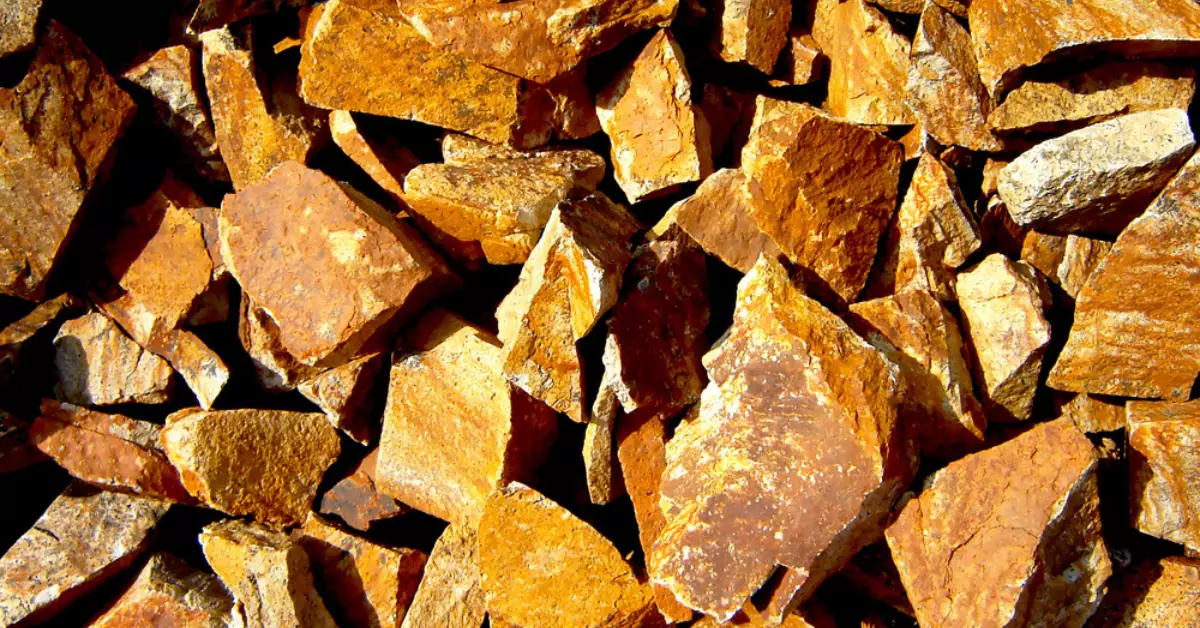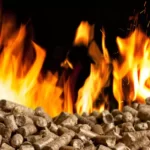Mulberry is more than just a delightful fruit-bearing tree. Known for its hard and durable wood, Mulberry has sparked interest among culinary enthusiasts and pitmasters alike. This tree’s unique properties have made it a point of discussion in the world of smoking foods.
Yes, Mulberry is indeed good for smoking. Its hard, dense wood creates a slow, steady burn ideal for low and slow cooking methods. Moreover, Mulberry imparts a distinct, mildly sweet flavor, enhancing the taste profile of smoked foods.
From the perspective of culinary arts, smoking isn’t just a method to cook or preserve foods. It’s an age-old technique transforming ordinary ingredients into gourmet wonders. The choice of wood is crucial here, and Mulberry, with its unique traits, has emerged as a promising option.
Features of Mulberry Wood for Smoking
Hardness and Density of Mulberry Wood
Mulberry is a hardwood, known for its impressive density. Hardwoods are desirable for smoking due to their prolonged burn times and consistent heat. This density contributes to the slow, steady combustion required in smoking, maintaining optimal temperature for extended periods.
Mulberry Wood Flavor Profile
When it comes to flavor, Mulberry is quite distinctive. The smoke generated from this wood has a mild sweetness to it, somewhat akin to apple or cherry wood. This subtly sweet aroma enhances the taste of the smoked meat without overpowering its natural flavors.
Mulberry Wood and Other Smoking Woods Comparison
The world of smoking wood is diverse and vast. Each type of wood lends its distinct flavor and characteristics to the smoking process, thus affecting the end result. How does Mulberry stack up against other popular smoking woods? Let’s take a closer look.
Comparing Mulberry with Popular Smoking Woods
Mulberry vs. Oak
Oak is often the go-to wood for smoking, lauded for its robust flavor and excellent heat retention. It’s a versatile choice that works well with a variety of meats. Mulberry, on the other hand, provides a milder, sweeter flavor, setting it apart from the strong, full-bodied taste of oak. For those looking for a less intense flavor profile, Mulberry is a superb choice.
Mulberry vs. Hickory
Hickory is another favorite among pitmasters, known for its hearty, bacon-like flavor. It pairs well with red meats and is perfect for creating that classic, smoky barbecue taste. In comparison, Mulberry’s sweetness adds a different dimension to the taste, offering a nuanced flavor palate that is more delicate and less overpowering.
Mulberry vs. Apple
Apple wood provides a light, fruity flavor, best suited for poultry and pork. While Mulberry also gives off a mild sweetness, it leans more towards a neutral taste. This neutrality can be a boon, allowing the natural flavor of the meat to shine through.
Unique Characteristics of Mulberry Wood
Mulberry wood exhibits certain qualities that make it stand out from other smoking woods.
- Density and Hardness: Mulberry’s hardness and density are among its most significant attributes. These factors contribute to its slow and even burn, making it a reliable choice for lengthy smoking sessions.
- Versatile Flavor: The flavor profile of Mulberry smoke is subtly sweet, adding a layer of complexity to the smoked dish. It is versatile enough to pair with a wide variety of foods, from meats to cheeses.
- Efficiency: Mulberry’s slow burn rate makes it an economical choice for smoking. A little goes a long way with this hardwood, making it an efficient choice for both amateur and seasoned smokers.
Benefits of Using Mulberry for Smoking
There are several reasons why Mulberry is gaining popularity as a choice of wood for smoking. Its unique characteristics offer some clear advantages.
Flavor Enhancement by Mulberry Wood
Mulberry wood imparts a distinctive, mildly sweet flavor to the smoke, which is then absorbed by the food. This enhancement of flavor is one of the main benefits of using Mulberry for smoking.
- Sweetness: The sweetness of Mulberry smoke provides a delicious contrast to savory meats, helping to balance and elevate the overall flavor profile.
- Subtlety: Unlike stronger woods such as mesquite or hickory, the flavor of Mulberry smoke is quite subtle. This means it enhances the taste of your food without overwhelming the natural flavors.
Efficiency and Burn Rate
Another benefit of using Mulberry wood for smoking is its efficiency. Thanks to its high density, Mulberry burns slowly and provides a steady heat source, making it ideal for long smoking sessions.
- Long Burn Time: A piece of Mulberry wood will last longer in your smoker compared to softer woods. This means you’ll need to replenish your fuel less frequently, saving you time and effort.
- Consistent Temperature: Maintaining a consistent temperature is key to successful smoking. Mulberry’s dense nature allows for a steady burn, helping to keep your smoker at the right temperature for longer.
How to Use Mulberry Wood for Smoking
Successful smoking with Mulberry wood involves a few key steps. By following these, you can ensure the best possible flavor and optimal smoking conditions.
Prepping Mulberry Wood for Smoking
Proper preparation of Mulberry wood is essential to achieve the best results when smoking.
- Seasoning: Like all hardwoods, Mulberry wood needs to be seasoned before use. This involves storing the wood in a dry, well-ventilated area for at least 6 months, or until the moisture content is below 20%. Seasoned wood burns cleaner and provides better smoke for flavoring your food.
- Size: For best results, Mulberry wood should be cut into chunks or split logs. These sizes are ideal for most smokers and provide a good surface area for combustion.
Best Practices for Smoking with Mulberry
Getting the most out of your Mulberry wood when smoking involves following a few best practices.
- Fire Up Your Smoker: Start by lighting your smoker. You can use charcoal as your primary fuel, adding Mulberry wood chunks once the coals are well-lit.
- Add Your Food: Once your smoker is preheated and the Mulberry wood is producing a steady stream of smoke, it’s time to add your food. Remember to keep the smoker’s temperature between 200-275°F for optimal smoking conditions.
- Monitor and Refill: Keep an eye on your smoker throughout the process. Replenish the Mulberry wood as needed to maintain a consistent temperature and smoke level.
Safety Considerations When Smoking with Mulberry
Potential Health Risks
While Mulberry is generally safe for smoking, one must consider potential allergies. Some people might be sensitive to Mulberry smoke. Therefore, it’s always a good idea to try a small batch first and see if anyone experiences allergic reactions.
Tips for Safe Smoking
For safe smoking, always ensure that your Mulberry wood is well-seasoned and hasn’t been treated with any chemicals. Maintain a safe distance from the smoke, and always cook your food to the recommended internal temperature.
Testimonials and User Experiences
Professional Chefs on Mulberry Smoking
Professional chefs have expressed a growing interest in Mulberry wood for its unique characteristics. They admire the subtle sweetness it imparts, adding a new dimension to smoked dishes.
Everyday Cooks Share Their Thoughts
Everyday cooks have also embraced Mulberry for its long burn time and efficiency. For them, Mulberry is an economical and flavorful option, particularly for those lengthy weekend smokes.
Frequently Asked Questions
Can You Smoke Any Type of Food with Mulberry?
Yes, you can smoke a variety of foods with Mulberry. Its mild, sweet smoke complements a wide range of foods, from meats like pork and poultry to vegetables and cheeses.
How to Store Mulberry Wood for Smoking?
Store Mulberry wood in a dry, well-ventilated area away from direct sunlight. Avoid areas with high humidity to prevent mold growth.
Is Mulberry Wood Easily Available?
Depending on your location, Mulberry wood can be sourced from local wood suppliers, garden centers, or online. Ensure it’s sourced sustainably and has been properly seasoned.
Conclusion
So, to answer the question — yes, Mulberry is indeed good for smoking. Its dense wood, long burn time, and unique flavor profile make it a worthy contender in the world of smoking woods.
The mild sweetness of Mulberry smoke can transform a simple dish into a gourmet delight. Whether you’re an experienced pitmaster or a beginner in the smoking realm, Mulberry wood offers an exciting avenue to explore.
Ultimately, the choice of wood boils down to personal preference. Given Mulberry’s promising characteristics, it’s definitely worth a try. Who knows, it might just become your next favorite smoking wood! After all, a little culinary experimentation has never hurt anyone.







